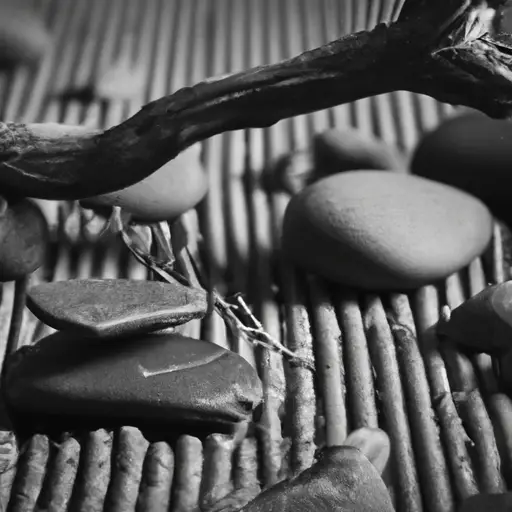Discovering the Zen in Miniature Landscapes from Containers
Immersing ourselves in nature has always been a great source of tranquility and relaxation. The soothing sound of flowing water, the vibrant hues of blooming flowers, and the refreshing scent of greenery can instantly transport us to a state of calmness. However, for those living in concrete jungles or with limited outdoor space, finding solace in nature can be quite challenging.
Luckily, there is a fascinating art form that allows us to create our own serene landscapes within the confines of our homes – miniature container gardens. These tiny gardens, also known as bonsai or penjing, originated in ancient China and Japan and have since captivated people from all walks of life with their timeless beauty.
Miniature landscapes from containers provide an escape from our fast-paced lives by offering a glimpse into a peaceful world that fits right on our windowsills or small corners. They consist of carefully arranged small plants, rocks, pebbles, moss, and sometimes even tiny figurines or pagodas. Each element is meticulously selected to recreate scenes from nature such as mountainside forests, tranquil ponds, or contemplative gardens.
One of the essential aspects of creating these miniature landscapes is the art of bonsai cultivation. Bonsai trees are meticulously pruned and shaped to resemble their full-sized counterparts but on a much smaller scale. This delicate process requires patience and discipline as it takes years to master the techniques needed to craft these living sculptures.
The serenity provided by these miniaturescapes goes beyond their aesthetic appeal. Many enthusiasts find themselves immersed in the process of designing and caring for these little worlds. It’s an art that demands attention to detail and encourages mindfulness as you meditatively tend to your miniature garden.
The act of arranging plants and elements within containers allows us to reconnect with nature on a smaller scale. It reminds us to appreciate natural beauty even in limited spaces. These tiny landscapes become a personal oasis, providing a sense of tranquility amidst the chaos of our daily lives.
Moreover, creating and tending to miniature landscapes can be a therapeutic activity. It has been proven that gardening and engaging with plants can reduce stress, anxiety, and depression. The process of nurturing plants in such confinement instills a sense of responsibility and fosters patience, as we must carefully monitor their growth and well-being.
Despite their small size, these container gardens encompass vast amounts of symbolism. Each element carries meaning – the rocks represent mountains, moss symbolizes forests or peaceful meadows, while water features evoke a sense of serenity and calmness. Their arrangement tells stories and invites contemplation.
The Zen philosophy plays a significant role in the creation of miniature landscapes from containers. Zen Buddhism emphasizes mindfulness, simplicity, and finding beauty in every aspect of life. The Zen garden aesthetic reflects this philosophy as it embraces minimalism by using only essential elements to create harmony and balance within limited spaces.
In today’s fast-paced world filled with constant distractions, incorporating miniature landscapes from containers into our lives can be an excellent way to reconnect with nature and find inner peace. By taking on this fascinating art form or simply observing these serene creations, we can discover the Zen within ourselves at any given moment.
So why not embark on this journey where nature meets art? Discover the beauty that lies within these miniature havens – containers that harbor universes where tranquility thrives. Allow yourself to be captivated by their intricate details, find solace in nurturing living sculptures, and let your mind wander to tranquil places even when confined to your home or office space.














